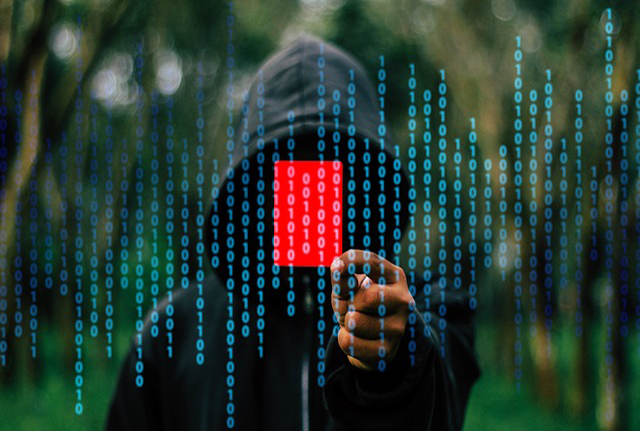Hackers and Viruses: What You Should Really Be Afraid Of.
Everyone these days is terrified of security breaches in their computers, of viruses and hackers, of the theft of your personal identity information, and of someone else taking over your computer.
These are not completely irrational fears. But most people are afraid of the wrong thing, and are locking the doors, in essence, when the thief is coming in Windows. In reality, viruses are only one group of malware products, a host of different miniprograms designed to make your computer obey someone else’s command.
Glossary: Types of Malware
Viruses are self-replicating automation programs that spread by inserting copies of themselves into other executable code or, more commonly, documents such as email. Because this almost perfectly duplicates the behavior of biological viruses, they were given the same name. Most viruses can be avoided by maintaining properly updated virus protection software and by not opening unexpected attachments in your email. Viruses are less common, but they’ve been replaced by worms and Trojan horses. A macro virus is significantly more dangerous than a regular virus, as it can be triggered by your opening a document, and then implant itself into some or all of your other documents. And viruses can also be sent via instant messaging, though that’s usually by sending a link to a website, where the virus is embedded on the page.
Payload/Bombs may be attached to a virus. A bomb is triggered by either a set time (time bomb) or action (logic bomb), like a virus set to go off only on Friday the 13th. The payload is the damage a virus does beyond just tying up your system resources.
Viruses are created as pranks, practice, vandalism, or to deliberately cause harm to software companies; many have been created simply to target Microsoft. You may also see people using viruses to commit crimes like identity theft.
Worms are often called viruses, but they’re different. They act more like bacteria; while they infect your computer when you go online just like viruses do, they can replicate by themselves and can send themselves to other computers. However, worms are more dangerous to networks, as they quickly propagate to linked computers and can overwhelm the network resources fairly quickly. Worms can be used to “zombie” computers, in which they take over a large number of other people’s computers and used them in a concentrated attack against a website to cause a DNS (denial-of-service) crash, or to do other obnoxious things like send untraceable spam. And like viruses, worms may carry a payload.
Trojan Horses are programs that you let into your computer, thinking that they are useful or nonmalicious programs. They often hide in graphics, movie, and music files, or in free games and programs you can download, and are initiated when you install or open these files. The most common types of Trojan horses today are spyware and adware programs, but there are others still out there that can zombie your computer, just like worms.
Spyware is a small software program that collects information about you and sends it back to a source, either when you visit a website or spontaneously when you’re online. Some spyware packages can even initiate an online session. The worst part is that most spyware are downloaded with other programs or media files.
Adware is similar to spyware, except it generally doesn’t collect information about you but instead sends advertising to you that you probably don’t want. This advertising can take several different forms: popup windows that tie up resources, unwanted advertising links on the web pages you’re visiting, or prompts when you open the program to visit X website. Most users consent to adware by accepting a user agreement.
How To Kill Malware
The most important thing you can do to eliminate malware on your computer is to maintain an up-to-date virus protection program and an up-to-date firewall that is not the Windows firewall. (The Windows firewall is good, but because it’s common, some viruses target it specifically, and can bring it down without you knowing it’s down.)
You should also download a good adware/spyware blocker. Be careful about this, several spyware blocker programs contain Trojan horses themselves – even spyware programs that cost you money! To protect yourself from this, download these programs free from Nonags.com (they check all their programs before putting them online, and rank them as well), or purchase your blocker from a company you’ve heard of instead of downloading it online.
Do not use online scans to determine how many viruses and other malware you have on your computer; these are typically scary selling tools. If you use the Internet, you’re almost certain to show an infection of some sort. Just download good freeware or buy some commercial programs and run scans.
Never click on any button on a popup window to close it; use the X in the upper right corner. By clicking on a popup window button, you can allow malware to initiate.
Never visit a website listed in a spam email. Many of them are infected with malware, and just by visiting you can get infected.
To protect yourself from viruses that target Internet Explorer, use a different browser. Firefox, Mozilla, and Opera are all good alternatives, and they’re free.
If you receive a suspicious email with an attachment , send an email back to the sender before you open it to verify they really meant for you to have it. Many email viruses self-replicate themselves using a mail system’s address list. For an extra layer of protection, use your email service’s online component before you download emails to eliminate unwanted mail.
How Safe Are You?
If you don’t do anything to protect yourself, you’re an open target for malware. If you have a broadband connection and no firewall, you’re also asking for it. Malware can seriously damage your computer; recently, my brother lost his whole system to a Trojan that duplicated most of the Windows processes, creating a Frankenstein version of Windows that couldn’t be removed without clearing the hard drive and flashing the BIOS, something that you really need to have a professional do. He can only hope that none of his personal information was stolen; fortunately, he doesn’t shop or bank online.
If, however, you’ve taken the previous steps to protect yourself, you’re probably safe. Make sure you run regular updates and patches for your computer (it or an email should notify you if you’re registered properly), and keep your brain switched on when you surf.




